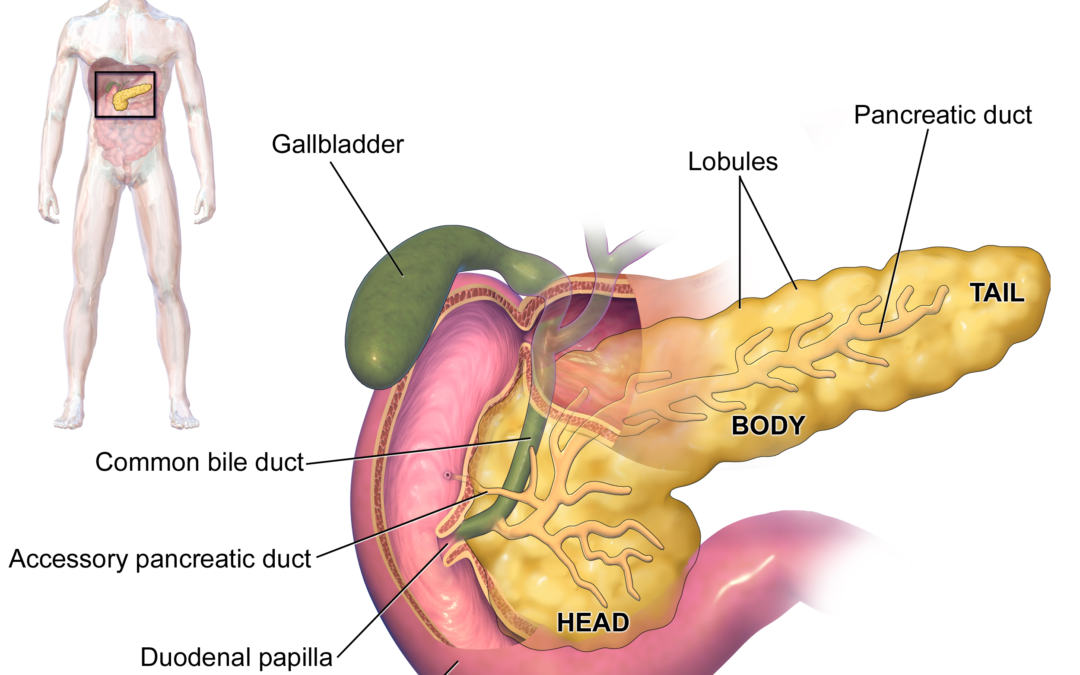A recent study partly funded by Worldwide Cancer Research has uncovered evidence that scientists may be able to detect pancreatic cancer through stool samples. Researchers in this study discovered 27 microbial species in stool samples that could indicate the most common type of pancreatic cancer. Early detection and diagnosis are some of the most important factors for improving survival rates, so this research has the potential to save a significant number of lives each year. Let’s take a deeper dive into this research and how it could be used to improve outcomes for patients with pancreatic cancer.
The Scope of Pancreatic Cancer
With approximately three out of 14 people passing away from pancreatic cancer within a year of their diagnosis, it is one of the most fatal forms of the disease. Moreover, it is notoriously difficult to treat, in part because the organ’s location deep in the abdomen makes it difficult for physicians to see or feel the tumor during physical exams. Current imaging technology also struggles to identify small pancreatic tumors effectively, which often results in late detection and diagnosis.
Additionally, pancreatic tumors are often surrounded by dense layers of tissue called the stroma, which makes it even more difficult for physicians to reach the tumor. Researchers are currently exploring possible ways to administer treatments through the stroma.
Unlike some other types of cancers, there is also no standard test for diagnosing pancreatic cancer. Physicians often need to conduct several tests to detect it. For many patients with pancreatic cancer, common treatments like chemotherapy and surgical tumor removal are not possible after their diagnosis, as the cancer has already spread and become unmanageable.
Effective early detection has proven to be the biggest obstacle in improving pancreatic cancer outcomes. However, researchers have been working toward finding solutions to this problem, and advancements in technology could lead to breakthroughs with the potential to improve survival rates.
The Role of the Microbiome in Cancer Development
The Worldwide Cancer Research study is the latest in a growing subfield of research into the role the microbiome plays in the development of cancer. The microbiome is a collection of microorganisms that live within the cells of our body, including bacteria, fungi, and viruses. Recent studies have found evidence that the microbiome is linked to cancer. While this research has shown that there are only a few microbes that directly cause cancer, many others may facilitate tumor growth.
Currently, major clinical trials are investigating the efficacy of microbiome modulation methods, including dietary modifications and injecting engineered bacteria directly into tumors. While most of the research has focused on treatment methods, the recent Worldwide Cancer Research is focused on detection and diagnosis. The stool sample discovery suggests that the microbiome present in stool samples could be used to diagnose pancreatic cancer much faster than is currently possible.
Methodology of the Stool Sample Pancreatic Cancer Study
Published in the journal Gut, the recent study on stool samples and pancreatic cancer analyzed 136 people and found an abundance of 27 different microbes in the stool samples of those who had been diagnosed with pancreatic ductal adenocarcinoma, the most common form of pancreatic cancer. These 27 microbes form a microbial profile that researchers believe could be used to identify pancreatic cancer at various stages. According to the study, the microbial profile reliably detected patients with the disease, regardless of how far it had progressed.
In the course of the study, 57 patients with pancreatic cancer were evaluated, including 25 with early-stage cancer and 32 at the advanced stage. There were also 50 participants without cancer who served as controls and 29 patients with chronic pancreatitis, a condition that damages the pancreas through inflammation.
Developing a Screening Tool
The findings of this study have sparked optimism elsewhere in the cancer research community. Following its publication, the Spanish National Cancer Research Center (CNIO) and the European Molecular Biology Laboratory (EMBL) both suggested that it would be feasible to develop a screening test for pancreatic cancer using stool samples. A patent application has been submitted for developing a pancreatic cancer diagnostic kit that can rapidly identify the microorganisms in stool samples.
If successfully developed, this type of screening tool could have the potential to save countless lives by diagnosing thousands of more people in the early stages of the disease, when they are still eligible for surgery, chemotherapy, and other treatment methods not available during the latter stages of pancreatic cancer.
While pancreatic cancer remains one of the most devastating forms of the disease, these findings may provide hope for the future. An effective early diagnostic tool would solve the biggest obstacle in improving pancreatic cancer rates. Additionally, ongoing clinical trials into effective treatment methods could further improve outcomes when used together with accurate diagnostic tools.

